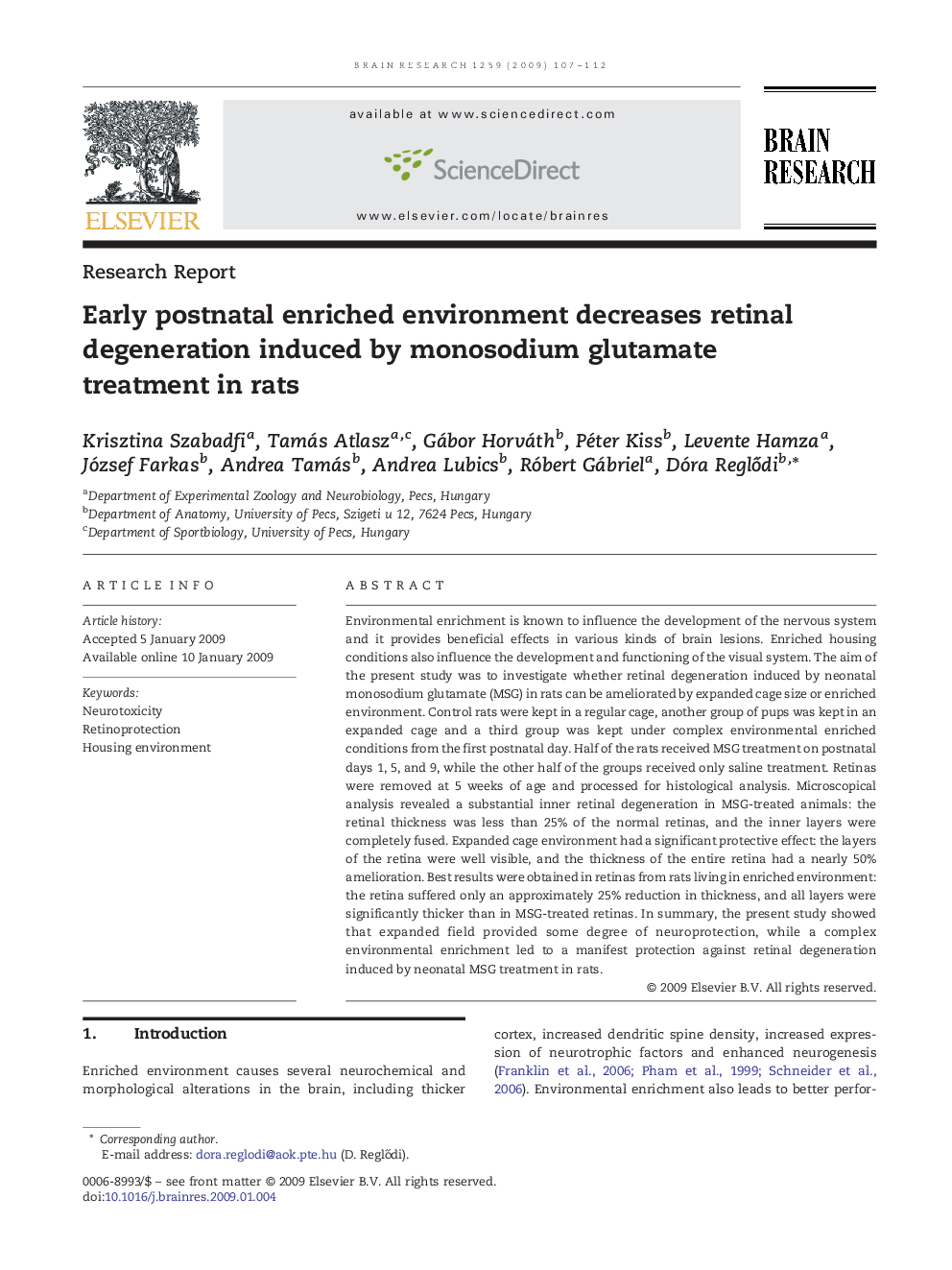| Article ID | Journal | Published Year | Pages | File Type |
|---|---|---|---|---|
| 4328555 | Brain Research | 2009 | 6 Pages |
Environmental enrichment is known to influence the development of the nervous system and it provides beneficial effects in various kinds of brain lesions. Enriched housing conditions also influence the development and functioning of the visual system. The aim of the present study was to investigate whether retinal degeneration induced by neonatal monosodium glutamate (MSG) in rats can be ameliorated by expanded cage size or enriched environment. Control rats were kept in a regular cage, another group of pups was kept in an expanded cage and a third group was kept under complex environmental enriched conditions from the first postnatal day. Half of the rats received MSG treatment on postnatal days 1, 5, and 9, while the other half of the groups received only saline treatment. Retinas were removed at 5 weeks of age and processed for histological analysis. Microscopical analysis revealed a substantial inner retinal degeneration in MSG-treated animals: the retinal thickness was less than 25% of the normal retinas, and the inner layers were completely fused. Expanded cage environment had a significant protective effect: the layers of the retina were well visible, and the thickness of the entire retina had a nearly 50% amelioration. Best results were obtained in retinas from rats living in enriched environment: the retina suffered only an approximately 25% reduction in thickness, and all layers were significantly thicker than in MSG-treated retinas. In summary, the present study showed that expanded field provided some degree of neuroprotection, while a complex environmental enrichment led to a manifest protection against retinal degeneration induced by neonatal MSG treatment in rats.
